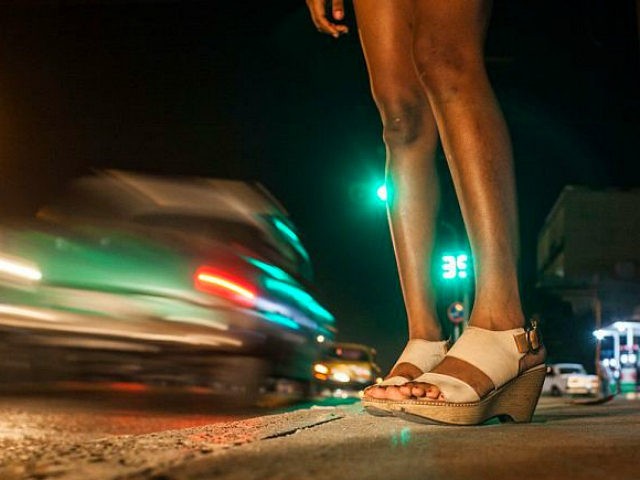The Communist Party of Cuba has long promoted itself as a champion of Marxist puritanism, condemning social deviants to concentration camps and heavily censoring music and film. Naturally, the government denies the pervasiveness of sexual tourism on the island.
A new report from the Spain-based Diario de Cuba reveals that prostitution is not only commonplace in Havana, it is so deeply entrenched in communist Cuban society that many police officers depend on bribes from prostitutes and pimps to supplement their meager government wages.
“Everything here is bad and you should know that no salary can pay for food for the month,” an unnamed police officer told the newspaper. “They chose this work, which is forbidden, to survive. I just make sure it’s smooth sailing, so we all survive and everybody wins, nobody loses.”
The officer is a friend of a local pimp’s, who also does not provide his real name but confirms that police “directly benefit from prostitution.” Each prostitute may bribe an officer up to five dollars per encounter, and pimps say police are much more willing to cooperate with pimps who conduct their business with minimal disturbances and who treat their prostitutes well.
“Police are a necessary evil in this business,” a prostitute laments to the newspaper. “They provide some security and blow the whistle when a [party] operative is in the area.” Another woman who runs a brothel also tells the newspaper she laments that police act as middlemen: “it really sucks that the girls have to pay a cut to two men [the pimp and the policeman], but they chose this life and that is the price.”
That Cuba is a haven for all sorts of sexual tourism is a well-known fact; the imprisoned sex tourism blogger David Strecker did not choose the name “Cuba Dave” on a whim. The liberal attitudes around sex in Cuba fly in the face of the principles of the Communist Revolution, however, defined by Fidel Castro’s fervent and violent sexual authoritarianism.
Castro used Soviet-style gulags, known as “Military Units to Aid Production” (UMAP), to quarantine LGBT individuals, social liberals, artists, Christians, and other “counterrevolutionaries” and punish them for their individualism. In an iconic 1963 speech, Castro condemned “hipsters,” “marijuana smokers,” “guitar players with Elvis Prestleyan attitudes,” and other “degenerates.” Castro banned most Western music — including, famously, the Rolling Stones.
To prove that the Revolutionary spirit was alive and well, the communist government banned “sexually explicit” dance music in 2012. The artist the law targeted, Osmani García, has since escaped to Miami and developed a successful international music career.
The zealous silencing of sexual expression has largely excluded prostitution, long an established tourist attraction in Cuba. The U.S.-based outlet TV Martí suggests that Cuba’s profile as a sex tourism destination flourished in the 1990s. The outlet reported in June 2016 that prostitutes are increasingly beholden to police officers to ensure they can conduct their labor. “There are plenty… who serve as taxi cabs for women when they leave the bars,” one prostitute told the outlet, suggesting police officers will facilitate for-profit sexual encounters in exchange for a bribe.
A year before Martí published that report, a video circulated on the internet showing a Cuban police officer helping a potential “john” meet a Cuban prostitute. The video surfaced as UNICEF issued an urgent plea to Cuban authorities to crack down on child prostitution and the production of child pornography. In response, the Cuban government issued a statement claiming to have “zero tolerance” for the practice and rejecting the claim that child prostitution occurs in Cuba. Cuban law enforcement has similarly taken a relaxed approach towards arresting and sentencing individuals accused of sexual assault of minors, with little more than half of these suspects being processed through the legal system.

COMMENTS
Please let us know if you're having issues with commenting.